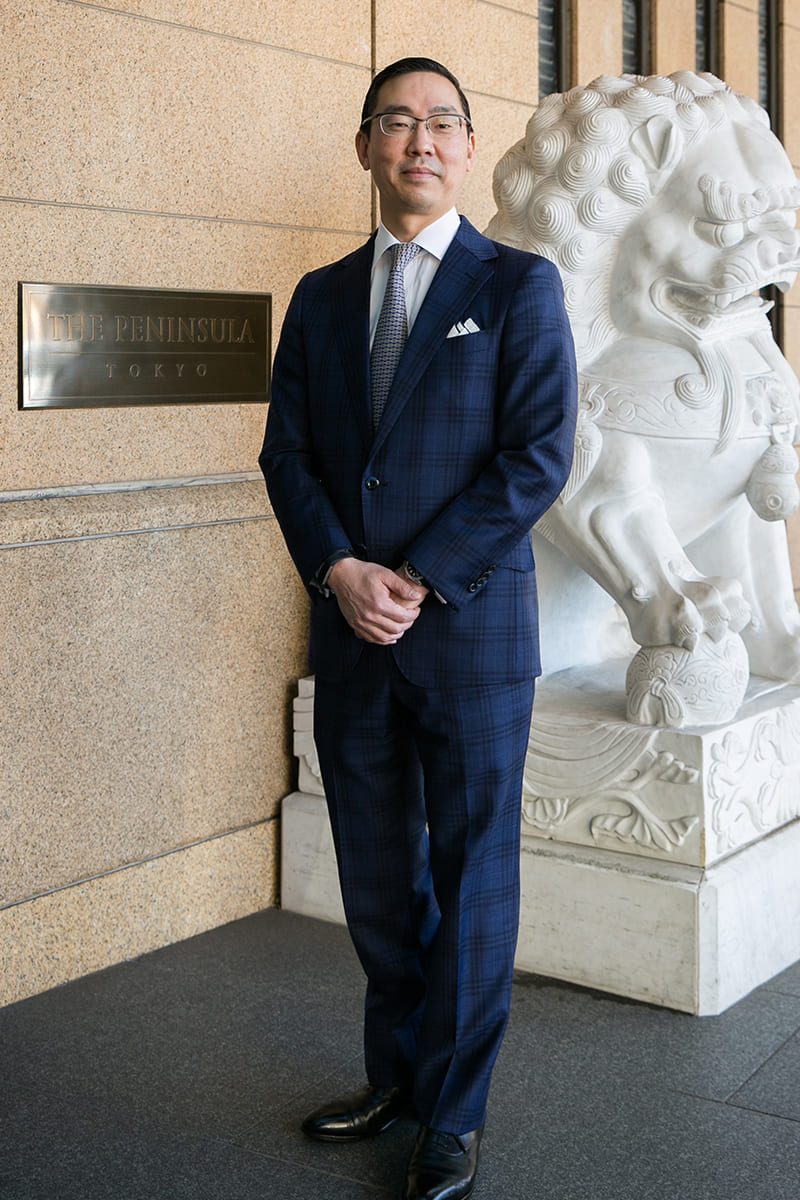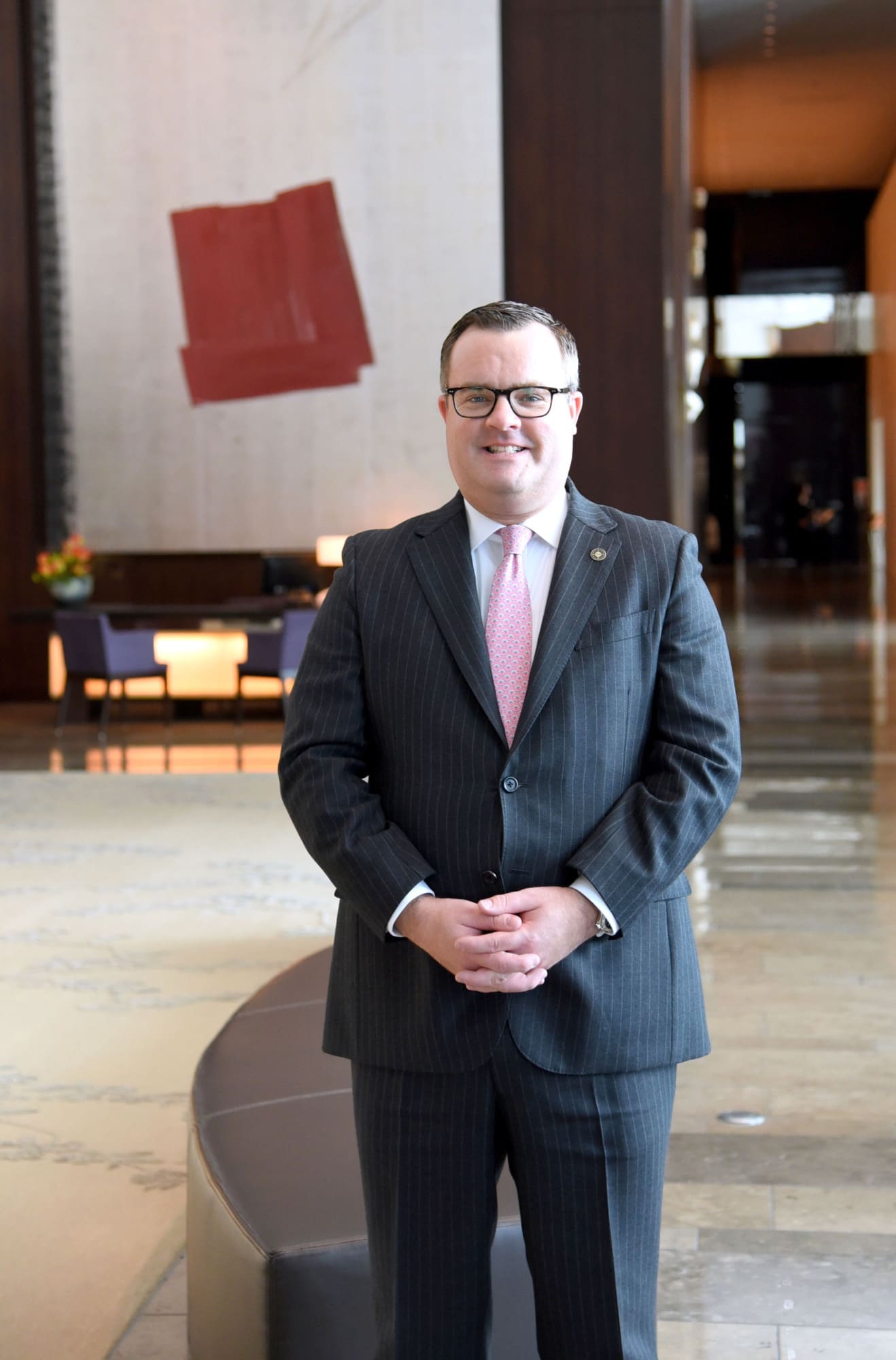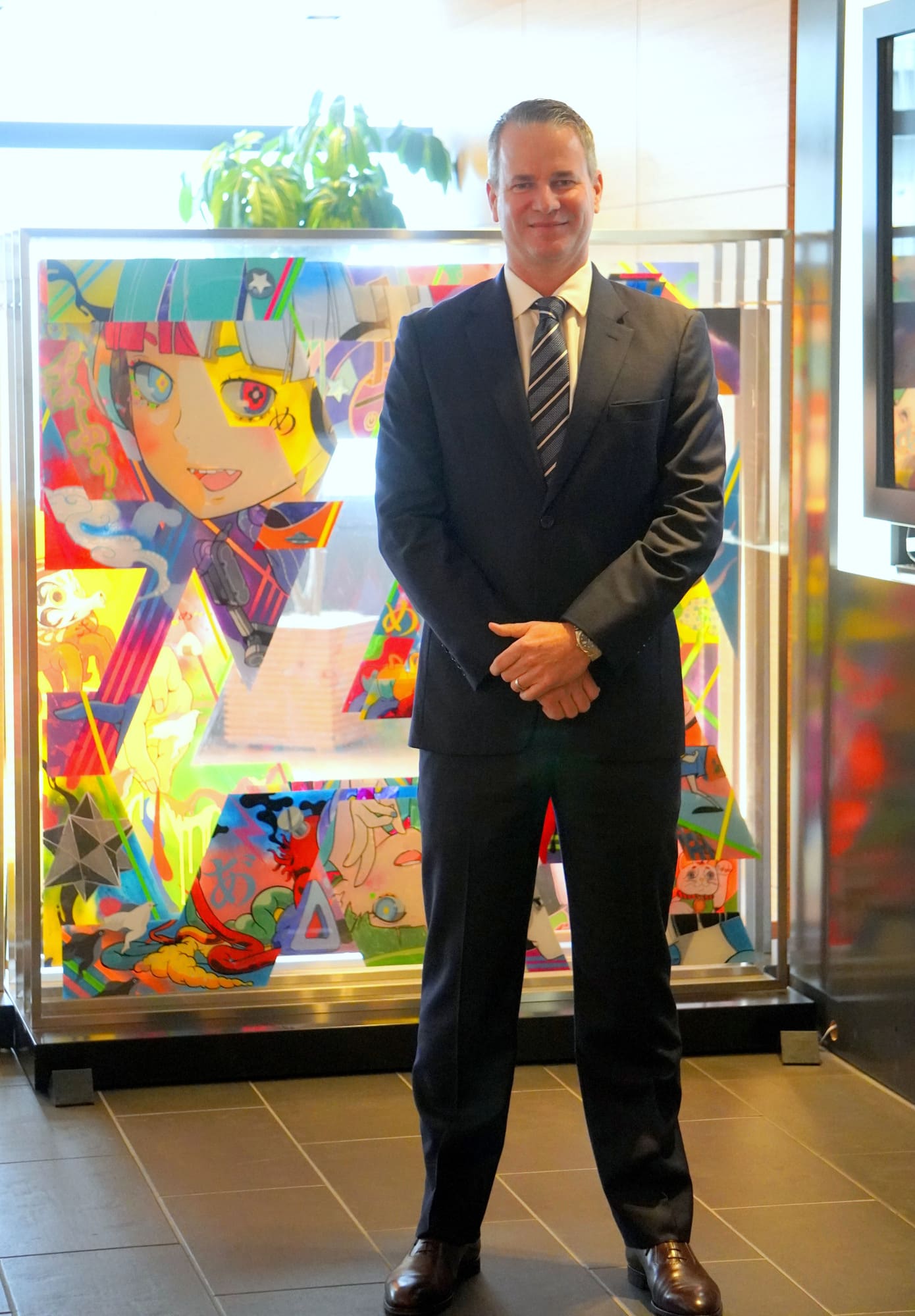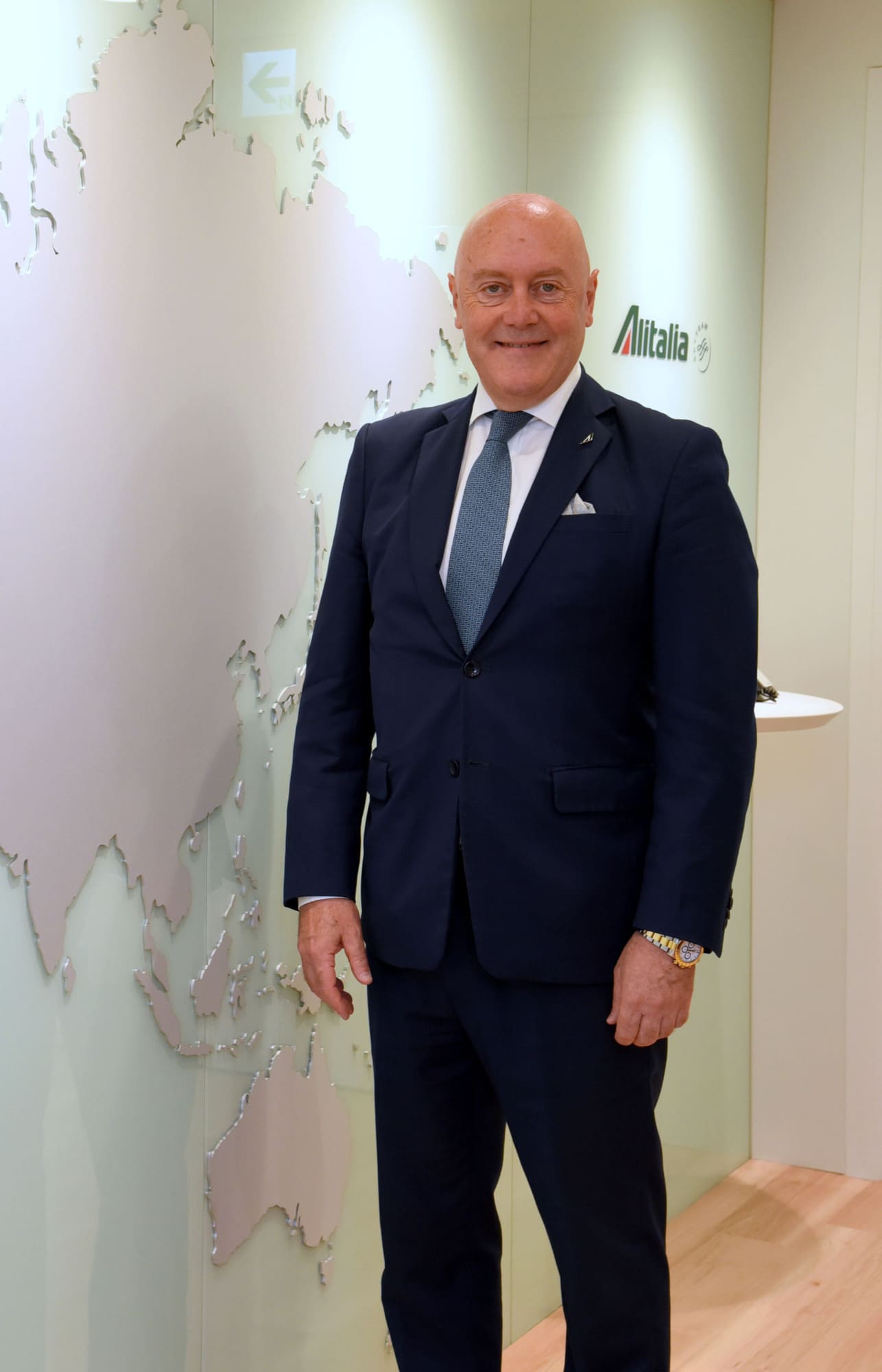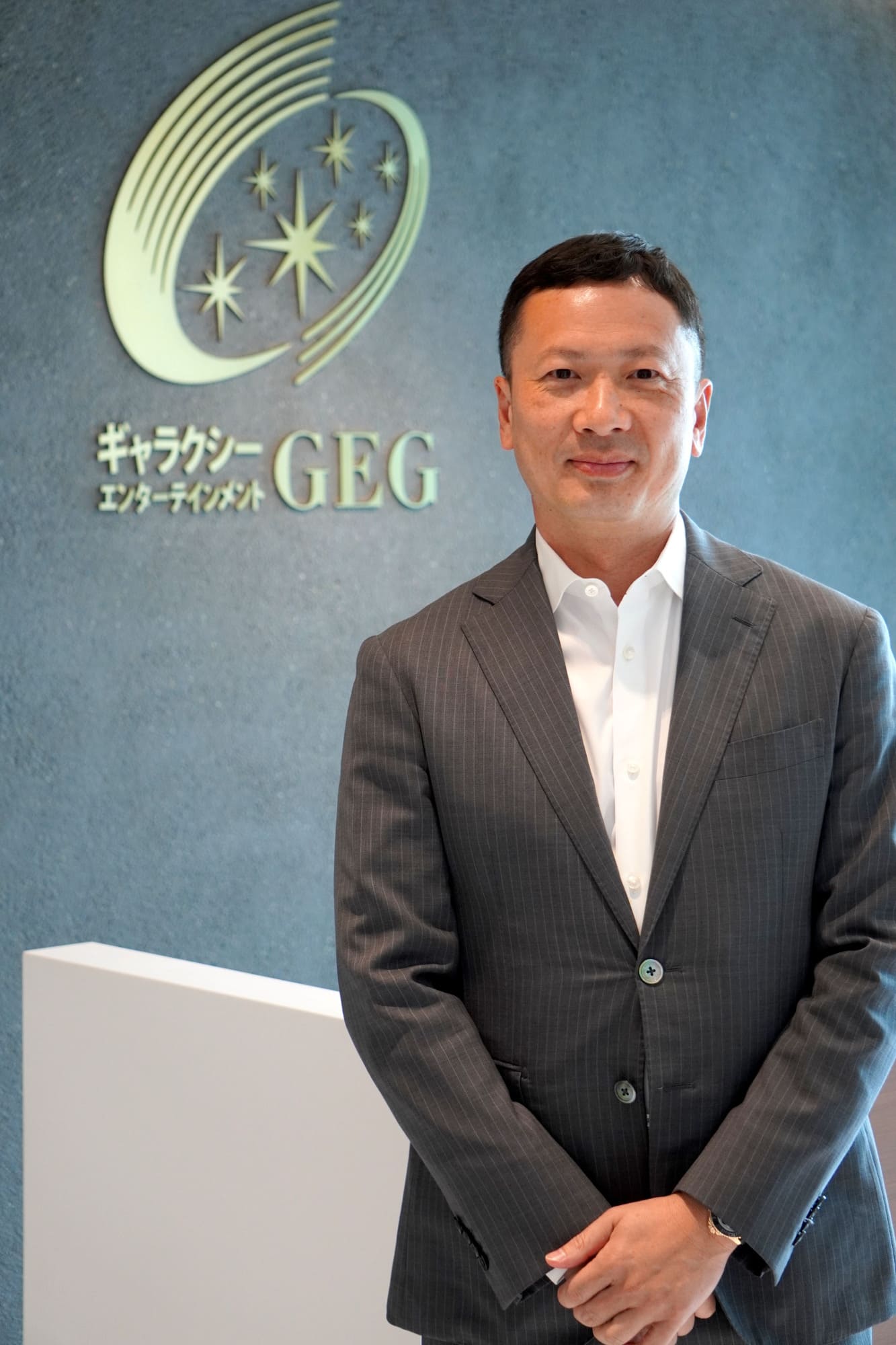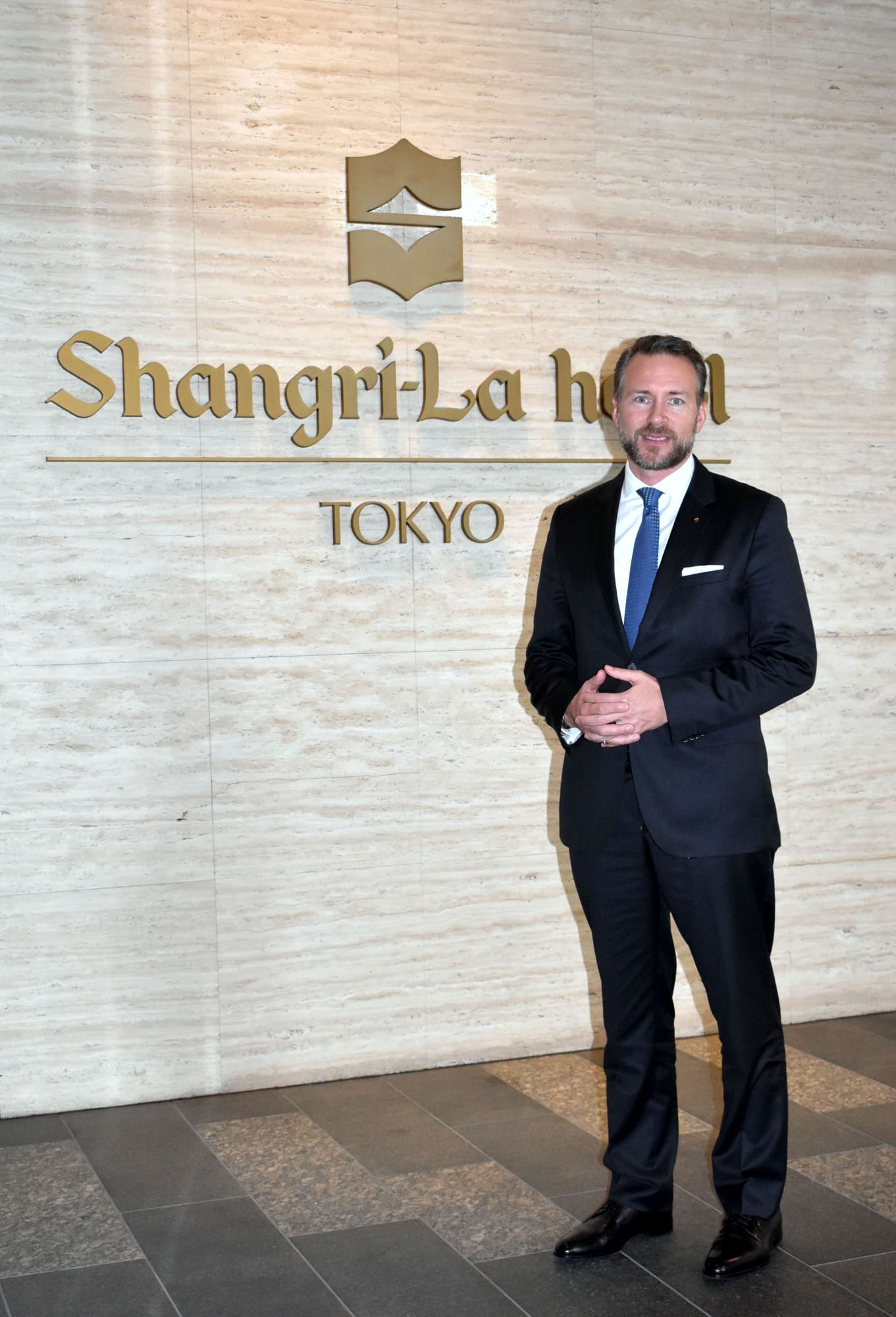
October 27, 2019
Eye for architecture meets luxury hotel management
BY JANE KITAGAWA
CONTRIBUTING WRITER
- Name: Matthias Sutter
- Title: General Manager, Shangri-La Hotel, Tokyo
- URL: https://www.shangri-la.com/jp/tokyo/shangrila/
- Hometown: Oberembrach, Switzerland
- Years in Japan: Less than a year
Matthias Sutter, the newly appointed general manager at the Shangri-La Hotel, Tokyo, is becoming more acquainted with the hotel than one would expect — he’s living there.
Newly arrived in September and in the middle of settling into life in Tokyo with his family and putting his children in school, Sutter looks forward to putting down more permanent roots. At the same time, he is relishing the chance to see his workplace through such an immersive lens.
Adding to the experience is the perspective the hotel professional brings to his role. Sutter once harbored visions of becoming an architect and completed studies in that field.
“Actually, if I wind back in time before that, in my teenage years I was on the national golf team and wanted to be a golf professional,” Sutter said, speaking with The Japan Times in one of the hotel’s elegant suites.
“But in Switzerland, when you go to your parents and say you want to be a professional athlete the response is, ‘That’s okay, but what do you want to do for a living?’” Sutter said with a laugh, describing himself as a rather talented amateur.
He ended up following in his father’s footsteps and studied architecture for five years, but realized that despite his determination and zeal, something wasn’t there. “I didn’t have the talent, that (artistic) flair,” he said. “My sketches were systematic, very robotic.”
A penchant and budding passion for organizing dinner parties and events, however, saw him gravitate toward hotel management and operations. Sutter gained qualifications and before long headed overseas on his first assignment. His architectural background, however, still very much informs his work, being particularly advantageous when it comes to working on hotel openings.
“You can look at the plans, you can liaise with the architect questioning how the air-conditioning was built, about the sanitary installation,” Sutter said. “(There’s always been) surprise at how well you can read the plan, of why you understand that,” he said. “But you also see when things are missing — that is a huge advantage.”
“It opens your eyes because you have to look at how things are constructed, how (furniture and decorations) sit in the room and where the light — is it cold or warm? — is coming from,” Sutter said, emphasizing that he wasn’t born with an innate attention to detail, but instead, developed certain skills due to his architectural studies.
“You can see when things are off,” he said. “You can see the attention to detail and I think that’s what luxury is about in the end. You walk through the lobby and automatically scan the room nonstop.”
For hotel properties that he has come to manage, part of Sutter’s approach is looking at a hotel’s original architectural plans, or using Google to investigate previous incarnations of a property. This is because previous general managers or food and beverage directors sometimes alter interiors and layouts to their liking, a faux pas in Sutter’s eyes.
Musing that humans are not getting any smarter but instead, more complicated, Sutter observes that in some cases a hotel property’s original story may be what works best. “I’m very passionate about it and certain properties give you this opportunity, ” he said.
In other cases, such as at the Shangri-La Hotel, Tokyo, the hotel is so well maintained that there is not much to amend.
“(This hotel) has been in business for 10 years; it’s not as old and the people who work here know what they’re doing … which makes it much easier,” Sutter said. “But I think after 10 years you also have the opportunity to look at if the setup is still right, because people (guests) change and their behavior changes.”
What makes the Shangri-La stand out in the luxury hotel market, he says, is that it is a family-owned brand. “This is an Asian company. … We don’t have an American management style so it’s a very different drive,” he said, noting that the company’s founder, Malaysian tycoon Robert Kuok and his family, were very much interested in leaving a brand legacy and are not purely motivated by growth and profit.
One example of this is the Shangri-La group’s commitment to finding land and building hotels rather than taking on a poorly performing property, refitting it and opening it under a new hotel brand. The group has purchased land and is currently developing the Shangri-La, Kyoto.
The Shangri-La’s smaller network of approximately 100 hotels may also remain somewhat true to core bespoke values, Sutter said, something that different groups with multiple properties in one city might not be able to uphold.
Having been in Tokyo for less than a month, Sutter is still finding his feet in the city, despite prior visits and stints in Japan. While he can see the city and Japan overall have both grown more international over the years, he said. “I feel like I’m (standing) with flip flops on the bottom of Mount Fuji.”
“The first time I came to Tokyo 18 years ago, I was single — no gray hair,” he said. “Next was about 10 years ago after my honeymoon, and now I’m here with my family,” he said, smiling.
Career in hospitality extends across Asia
Matthias Sutter brings extensive, global experience in leading luxury properties including St. Regis Hotels & Resorts, Peninsula Hotels and Hyatt. Prior to joining Shangri-La Hotel, Tokyo, he was general manager of the JW Marriott Phuket Resort & Spa. Before that he served as general manager at the Sheraton Seoul D Cube City Hotel, and hotel manager at the St. Regis Sanya Yalong Bay Resort. Sutter’s executive experience also includes task force assignments at the St. Regis Singapore, the Moxy Tokyo Kinshicho and Moxy Osaka Honmachi. Sutter grew up near Zurich and initially studied architecture before gravitating toward the hospitality industry, earning a bachelor’s degree in hospitality at the Hotel Management School Belvoirpark Hotelfachschule Zurich. He later earned a master’s degree in economics from the University of Zurich’s Graduate School of Business. Once a member of the Swiss National Junior Golf team, he is now a passionate triathlete. Sutter is fluent in English, French and German.

